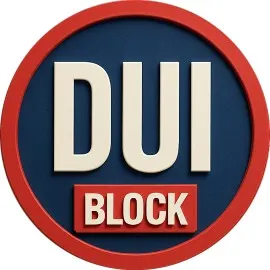DUI Checkpoints in Arkansas
| County | City | Location | Date |
|---|---|---|---|
| St. Francis | Forrest City, AR | Sobriety checkpoint at an undisclosed location. | Saturday, March 15, 2025 from 4 PM to 8 PM |
| Benton | Bella Vista | Undisclosed Location - City of Bella Vista | From 6 P.M Friday Dec 15, 2023 |
| Crittenden | West Memphis | Undisclosed Location | Tonight Sat Apr 9, 2022 |
Driving under the influence (DUI) remains a serious public safety concern across Arkansas. To combat this, local and state law enforcement agencies conduct sobriety checkpoints and roving DUI patrols in strategic locations throughout the state. These checkpoints are meant to deter impaired driving, identify violators, and reduce fatal traffic crashes. Below is a detailed breakdown of the most common DUI checkpoint and enforcement areas in Arkansas.
1. Little Rock – Pulaski County
The Little Rock Police Department (LRPD) and the Pulaski County Sheriff’s Office frequently conduct DUI checkpoints throughout the city and surrounding county. High-traffic areas such as:
-
Interstate 630 (I-630) near Midtown and University Ave
-
Colonel Glenn Road near Shackleford
-
Baseline Road and Geyer Springs Road intersection
are commonly used for sobriety checkpoints due to the area’s nightlife, college campuses, and bar activity.
2. North Little Rock
Just across the Arkansas River, North Little Rock Police Department and Arkansas State Police (ASP) monitor:
-
MacArthur Drive near East Broadway
-
Camp Robinson Road
-
JFK Boulevard
This area sees high volumes of commuters and weekend visitors, making it a frequent target for DUI enforcement, especially on holidays.
3. Fayetteville – Washington County
The Fayetteville Police Department, in collaboration with the Washington County Sheriff’s Office, targets:
-
College Avenue (U.S. Route 71B) near downtown Fayetteville
-
Wedington Drive and Garland Avenue
-
Martin Luther King Jr. Boulevard
These locations are near the University of Arkansas and experience increased traffic during football games, concerts, and student-related events.
4. Fort Smith – Sebastian County
Fort Smith Police Department and Sebastian County Sheriff’s Office focus on:
-
Towson Avenue and Zero Street
-
Midland Boulevard and Rogers Avenue
-
I-540 ramps and exits near Kelley Highway
DUI checkpoints here often coincide with festivals, riverfront activities, and weekend nightlife.
5. Springdale
The Springdale Police Department, working with regional DUI task forces, routinely monitors:
-
Thompson Street (U.S. 71B)
-
Sunset Avenue
-
Don Tyson Parkway
Checkpoints are frequently held on Fridays and Saturdays in high-traffic retail and restaurant zones.
6. Jonesboro – Craighead County
In Jonesboro, the Jonesboro Police Department and Arkansas State Police Troop C conduct checkpoints on:
-
Caraway Road and Highland Drive
-
Red Wolf Boulevard (AR 49) near Arkansas State University
-
Southwest Drive
Due to student activity and local nightlife, these areas see frequent DUI enforcement operations.
7. Hot Springs – Garland County
Hot Springs, known for tourism and casinos, is heavily patrolled by the Hot Springs Police Department and Garland County Sheriff’s Office. DUI checkpoint areas include:
-
Central Avenue near Bathhouse Row
-
Airport Road (AR 70)
-
Higdon Ferry Road and Malvern Avenue
With many events and attractions drawing visitors, enforcement here is active year-round.
8. Conway – Faulkner County
The Conway Police Department partners with the Faulkner County Sheriff’s Office to enforce DUI laws in:
-
Oak Street and Harkrider Street
-
Dave Ward Drive
-
Salem Road and Prince Street
The presence of college students from the University of Central Arkansas leads to consistent DUI saturation patrols and checkpoints.
9. Pine Bluff – Jefferson County
The Pine Bluff Police Department and Jefferson County Sheriff’s Office monitor DUI activity on:
-
South Blake Street and West 6th Avenue
-
Olive Street near U.S. Route 65B
-
I-530 exit ramps
This area is known for impaired driving incidents, prompting proactive law enforcement measures.
10. Rogers and Bentonville – Benton County
Rogers Police Department, Bentonville Police Department, and Benton County Sheriff’s Office work jointly on DUI checkpoints at:
-
Walnut Street (AR 12) and 8th Street in Rogers
-
Walton Boulevard and Central Avenue in Bentonville
-
New Hope Road
These fast-growing cities see a lot of weekend traffic and special events, making them common targets for DUI enforcement.
11. Texarkana – Miller County
The Texarkana Arkansas Police Department and Miller County Sheriff’s Office focus DUI operations on:
-
East Street and State Line Avenue
-
Jefferson Avenue near the downtown district
-
I-30 near Stateline Mall
Being a border town, law enforcement in Texarkana is especially vigilant on both sides of the state line.
12. Russellville – Pope County
The Russellville Police Department and Pope County Sheriff’s Office conduct checkpoints near:
-
East Main Street and El Paso Avenue
-
Arkansas Avenue
-
Highway 7
Close proximity to Lake Dardanelle and Arkansas Tech University means more recreational and student-related DUI stops.
13. Harrison – Boone County
In Northern Arkansas, Harrison Police Department and Boone County Sheriff’s Office monitor:
-
Highway 65
-
Stephenson Avenue and Main Street
-
Industrial Park Road
This area sees DUI enforcement particularly during summer months when tourism increases in the Ozarks.
14. Searcy – White County
The Searcy Police Department partners with the White County Sheriff’s Office on:
-
Race Avenue and Beebe-Capps Expressway
-
Main Street
-
Highway 36
Checkpoints here often coincide with local events and holidays.
15. Cabot – Lonoke County
The Cabot Police Department and Lonoke County Sheriff’s Office operate DUI checkpoints at:
-
Highway 321 and Main Street
-
South Pine Street
-
Campground Road
Enforcement in this rapidly growing community helps curb alcohol-related traffic offenses.
These checkpoint areas are only a sample of where Arkansas law enforcement is actively working to prevent impaired driving. Operations may change in location and time without public notice. However, agencies generally announce them via press releases or local news for transparency.
